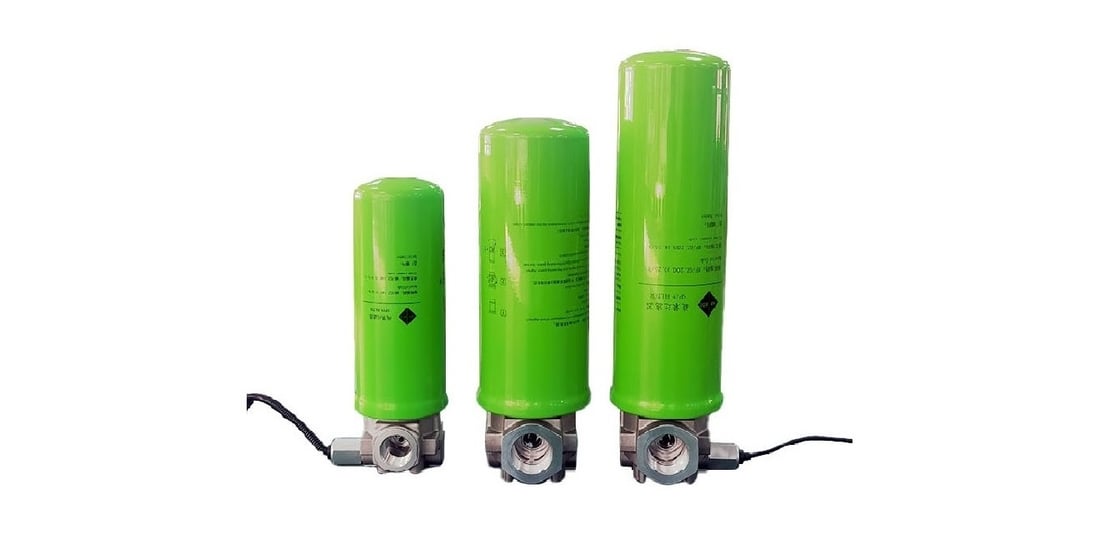Hydraulic oil filter is a device used to filter solid impurities in the hydraulic system, which can keep the hydraulic oil clean and protect the normal work of the hydraulic system. In order to understand the role and importance of hydraulic oil filters in more detail, the following will be introduced around its various aspects:
1. Filtering function of hydraulic oil filter
(1) Remove solid particles
Through its specially designed filter element and filter screen, the hydraulic oil filter can effectively capture and remove solid particles and impurities in the hydraulic oil, such as metal chips, sand, dust, etc. If these particles are not removed, they will lead to wear and blockage of the hydraulic system components, reduce the efficiency of the system and even cause failure.
(2) Prevent foam
The foam separator in the filter effectively removes bubbles and foams in the oil, which are usually caused by mechanical vibration, excessive oil flow rates, or excessive oil temperature. Foam will reduce the lubrication performance and carrying capacity of the oil, and even cause oscillations and noise of the system.
(3) Remove water and chemical pollutants
Moisture can cause the hydraulic oil to oxidize and corrode the components, and the water separator in the filter can effectively remove the water in the hydraulic oil, keeping the oil dry and clean. At the same time, the filter also prevents chemical contaminants such as acids, alkalis and oxidants from entering the system, protecting seals and components from damage.
2. Classification and characteristics of hydraulic oil filter
(1) Classification according to filtration accuracy
The hydraulic oil filter can be divided into crude oil filter, ordinary oil filter, fine oil filter and special fine oil filter according to the filtration accuracy. Different precision filters are suitable for different application scenarios to meet the different requirements of the system for oil cleanliness.
(2) Classified by filter type
According to the structure of the filter element, the hydraulic oil filter can be divided into mesh type oil filter, line gap type oil filter, paper core type oil filter and sintering type oil filter. The screen type oil filter is generally used for the oil suction port of the hydraulic pump, which has large flow capacity but low filtration accuracy. The linear gap type oil filter has simple structure and is mostly used for returning oil filter. Paper core oil filter has high precision, which is used for fine filtration of oil, but it needs to be replaced after plugging; Sintered oil filter can withstand high pressure, high filtration accuracy.
3. How it works
(1) Interception and adsorption
Hydraulic oil filter mainly through direct interception and adsorption to complete the filtration effect. When the hydraulic oil flows into the filter from the filter, the impurities larger than the filter bore are blocked outside the filter, so as to purify the oil. Magnetic filters use magnetic forces to adsorb ferromagnetic particles in the oil.
(2) Differential pressure work
During the working process, with the accumulation of pollutants on the filter element, the pressure difference between the inlet and outlet sides of the filter will increase. When the pressure difference reaches a certain value, it is necessary to replace or clean the filter element in time to ensure the filtration effect and the stable operation of the system.
4. Installation position of hydraulic oil filter
(1) Oil suction filter
Installed in the oil suction port or suction line to prevent pollutants from entering the hydraulic pump. This filter usually uses a mesh or line gap filter without a shell, with large flow capacity and small resistance, so as not to affect the oil absorption performance of the pump.
(2) Pressure line filter
Installed on the pressure oil circuit, mainly used to protect the downstream hydraulic components of the pump. This filter requires high filtration accuracy and must be able to withstand the maximum working pressure and peak pressure of the system.
(3) Return oil filter
Installed on the return oil line to remove impurities in the oil and provide clean oil for the system. Due to the low pressure of the return pipe, this filter has relatively low filtration accuracy and strength requirements.
5. Maintenance methods
(1) Replace the filter element regularly
During the use of hydraulic oil filters, pollutants will gradually accumulate in the filter element, resulting in an increase in pressure difference and affecting the filtration effect. Therefore, regular inspection and replacement of the filter element is an important step to ensure the normal operation of the filter.
(2) Cleaning and maintenance
For washable filters, such as wire-gap filters, they can be cleaned during the replacement cycle to extend their service life. At the same time, the seals and connecting parts around the filter should be checked to ensure that there is no leakage.
6. Precautions
(1) Select the appropriate filter
Select the appropriate type and precision filter according to the working pressure of the hydraulic system, oil viscosity, working environment, etc. For example, in precision hydraulic systems, high-precision filters should be selected to ensure oil cleanliness.
(2) Ensure sufficient flow
The filter should have sufficient through-flow capacity to handle the system flow without creating excessive pressure drops. In particular, the oil suction filter, its filtration capacity should be more than twice the pump flow, in order to prevent the oil absorption performance of the pump.

